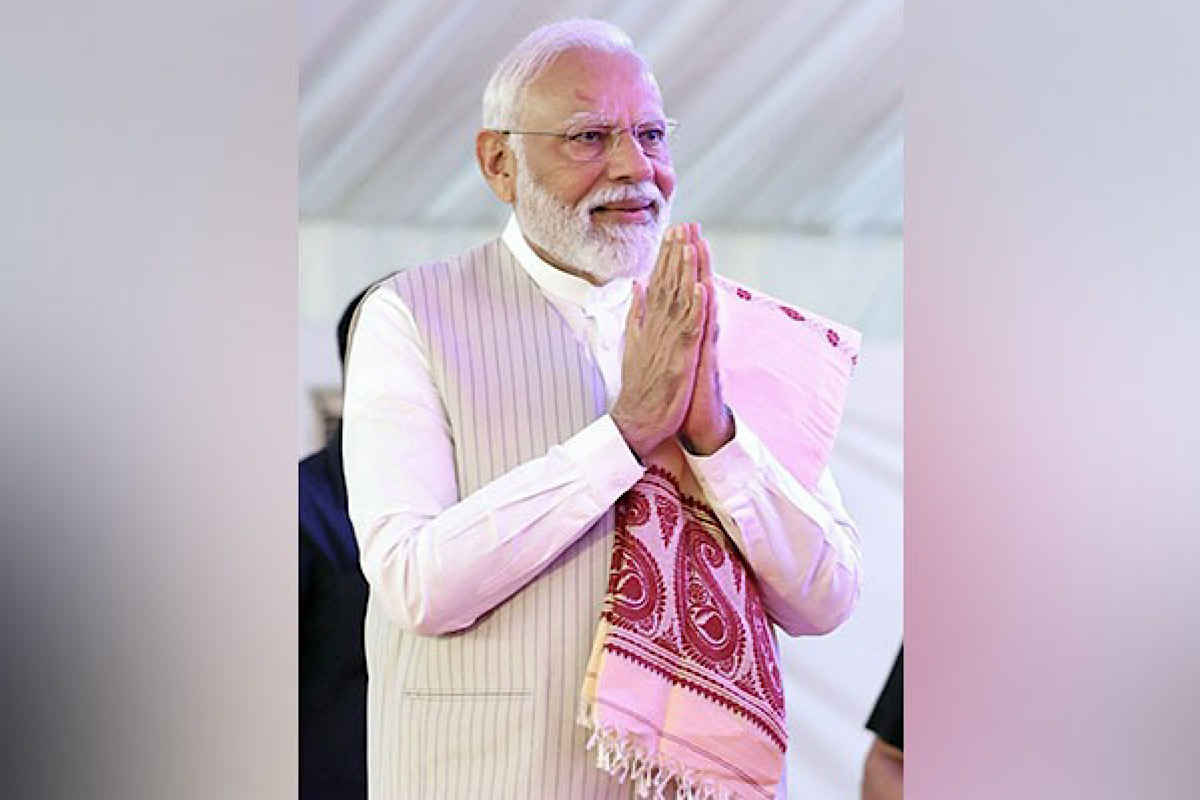LS polls: PM Modi to campaign in K’taka, Maharashtra today
Intensifying the campaign for the Lok Sabha elections, Prime Minister Narendra Modi will address four public meetings on Monday -- one in Karnataka and three in Maharashtra.
In the complex tapestry of Indian politics, one figure stands out: Mr Narendra Modi, the enigmatic Prime Minister who continues to defy conventional wisdom.

PM Modi (File photo:SNS)
In the complex tapestry of Indian politics, one figure stands out: Mr Narendra Modi, the enigmatic Prime Minister who continues to defy conventional wisdom. While the global narrative often associates him with rightwing populism, Mr Modi’s appeal extends far beyond simplistic categorisations. His paradoxical popularity among India’s educated elite challenges preconceived notions, underscoring the need for a nuanced understanding of his leadership. At the heart of Mr Modi’s allure lies his ability to navigate the intricate web of class and caste dynamics in Indian society.
Despite hailing from a backward caste himself, Mr Modi has adeptly positioned the Bharatiya Janata Party (BJP) as a “pan-Hindu” entity, bridging divides between high-caste groups and marginalised communities. This astute manoeuvring has earned him steadfast support across diverse segments of the population, including the traditional business and trading communities. By transcending conventional barriers, Mr Modi has forged a coalition that defies easy characterisation, a testament to his political acumen. Economic factors further bolster Mr Modi’s standing among India’s elite.
Under his stewardship, the country has witnessed robust GDP growth, albeit with disparities in distribution. The emergence of an affluent middle class, characterised by a rapid increase in disposable income, has solidified Mr Modi’s appeal among those who have reaped the benefits of India’s economic ascent. His probusiness policies, coupled with a vision for India as a global economic powerhouse, resonate with a demographic that prioritises financial stability and prosperity. However, it is Mr Modi’s brand of strongman leadership that truly sets him apart. In an era marked by uncertainty and geopolitical upheaval, many view his decisive approach as a beacon of stability.
Advertisement
Mr Modi’s unapologetic nationalism and pragmatic foreign policy have endeared him to segments of the elite who value assertiveness on the global stage. His willingness to challenge Western norms while championing Indian interests strikes a chord with those who yearn for a leader unafraid to defy convention. Yet, Mr Modi’s ascent is not without controversy. Critics decry his administration’s treatment of minority communities, citing concerns over religious intolerance and authoritarian tendencies. The recent arrest of political opponents has reignited fears of state overreach.
While many acknowledge these shortcomings, they contend that the broader trajectory of Mr Modi’s leadership outweighs isolated missteps. Moreover, Mr Modi’s strategic positioning as a nationalist leader adept at navigating the complexities of global geopolitics has earned him admiration beyond India’s borders. His diplomatic prowess and vision for India’s role on the world stage have garnered international attention and respect, further bolstering his stature as a statesman of consequence.
In essence, Mr Modi’s popularity among India’s elite defies easy explanation. It is a complex amalgamation of identity politics, economic pragmatism, and admiration for strong leadership. As India navigates an uncertain future, Mr Modi remains a polarising figure, revered by many and reviled by some. Yet, his ability to command loyalty across disparate constituencies speaks to a deeper resonance that transcends conventional political calculus.
Advertisement